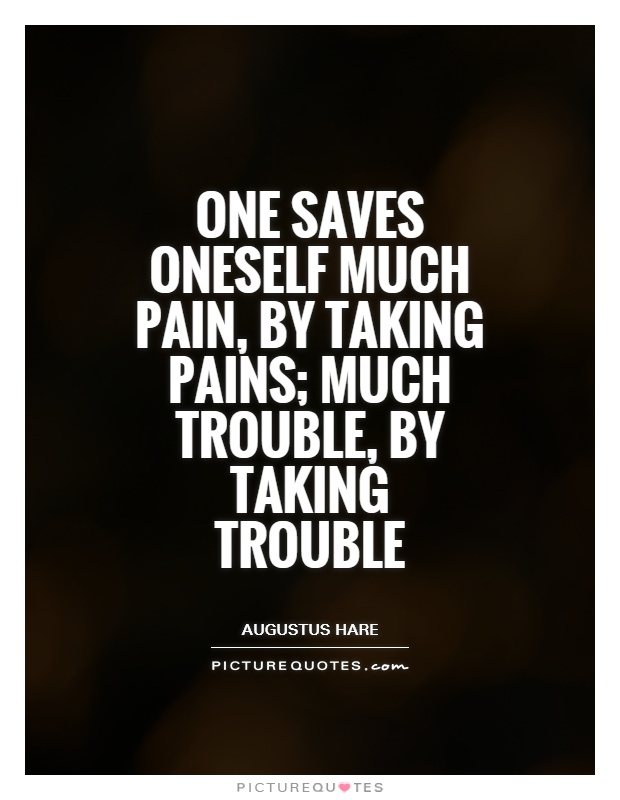One saves oneself much pain, by taking pains; much trouble, by taking trouble

One saves oneself much pain, by taking pains; much trouble, by taking trouble
Augustus Hare, a 19th-century English writer known for his travel books and biographies, understood the importance of putting in effort and taking care in one's actions. His quote, "One saves oneself much pain, by taking pains; much trouble, by taking trouble," encapsulates the idea that by being diligent and attentive in our endeavors, we can avoid unnecessary suffering and difficulties.In the context of Hare's own life and work, this quote can be seen as a reflection of his meticulous approach to writing and research. Hare was known for his detailed descriptions and thorough research, often spending years gathering information for his books. By taking the time to carefully investigate his subjects and craft his prose, Hare was able to produce works that were not only informative but also engaging and well-received by readers.
Hare's quote can also be applied to the broader concept of personal growth and self-improvement. By putting in the effort to learn new skills, cultivate healthy habits, and build strong relationships, we can avoid the pain and trouble that often comes from neglecting our own well-being. Taking the time to invest in ourselves and our futures can lead to greater fulfillment and success in the long run.
Furthermore, Hare's quote serves as a reminder that shortcuts and quick fixes are rarely the best solution in the long run. By taking the time to do things properly and thoroughly, we can avoid the pitfalls that come from rushing through tasks or cutting corners. Whether it's in our work, relationships, or personal development, putting in the effort and taking care in our actions can lead to better outcomes and a more fulfilling life.












 Friendship Quotes
Friendship Quotes Love Quotes
Love Quotes Life Quotes
Life Quotes Funny Quotes
Funny Quotes Motivational Quotes
Motivational Quotes Inspirational Quotes
Inspirational Quotes